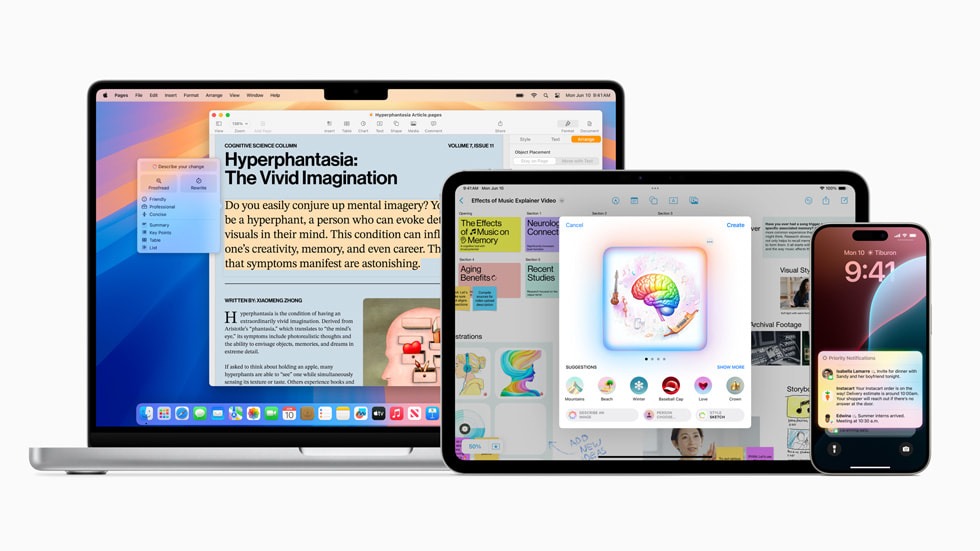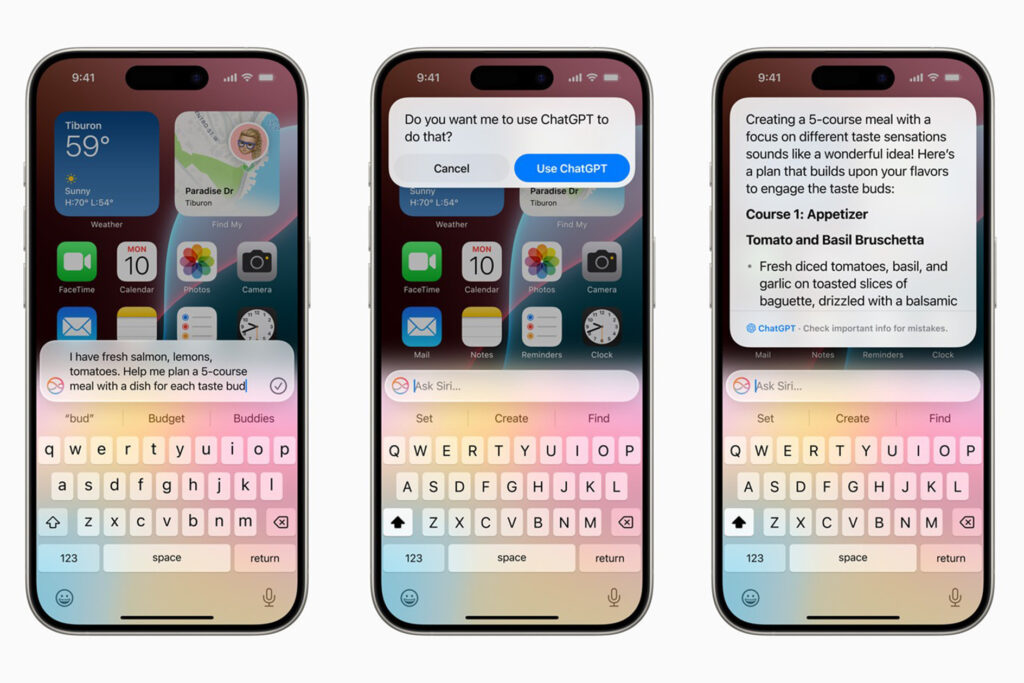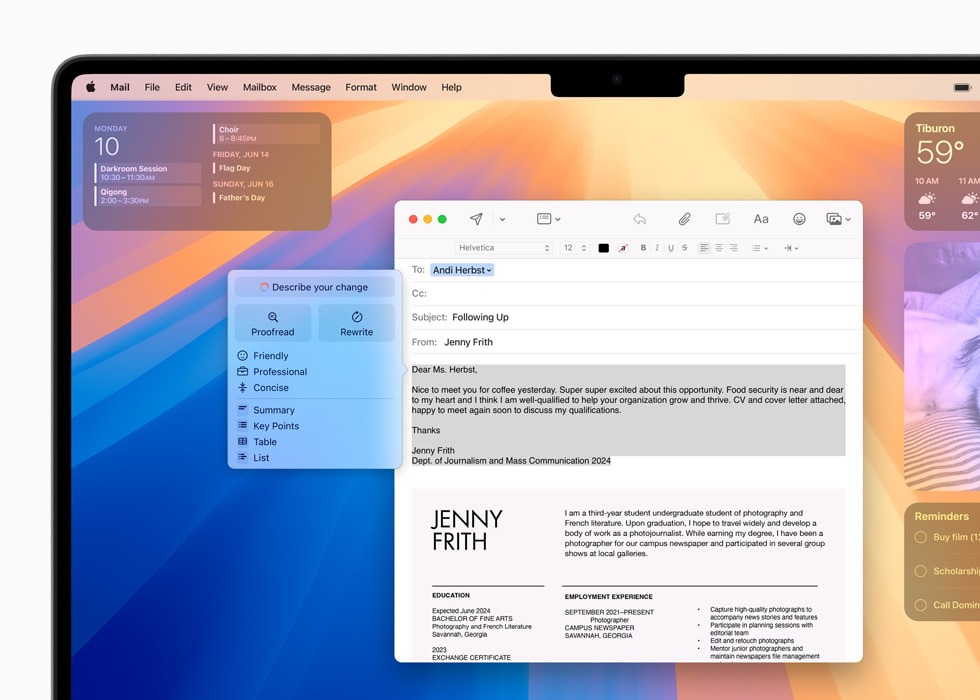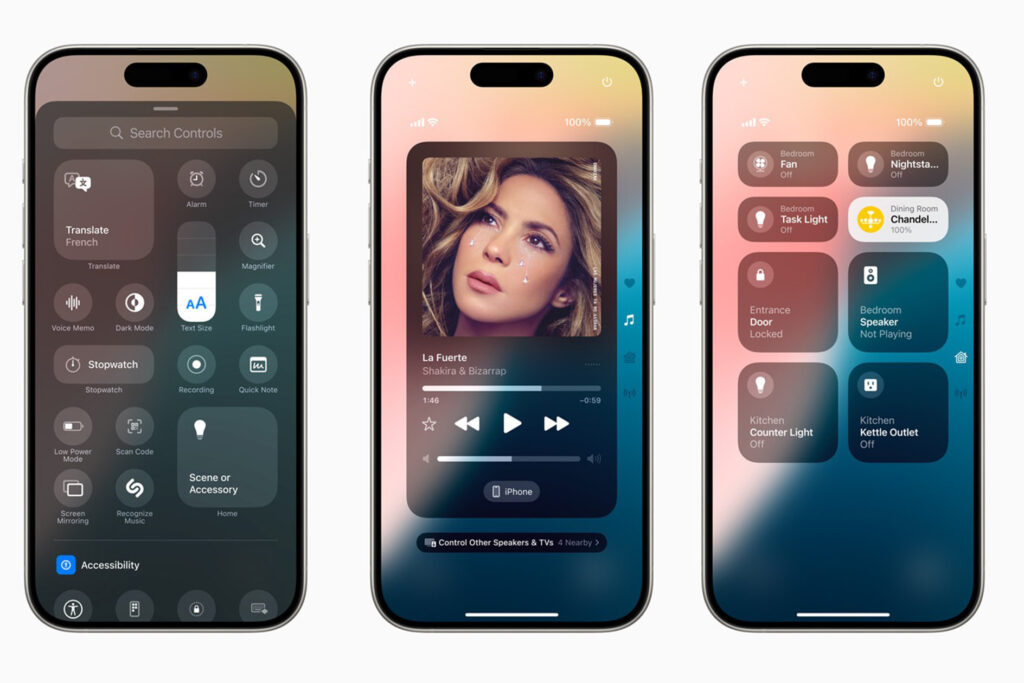With iOS 18, Apple Embraces AI — and Android’s Customizability
At Apple’s Worldwide Developers Conference, Apple showed the future of the iPhone is more customizable and AI-centric than ever before.

Watching Apple’s Worldwide Developer Conference, where they showed off the latest version of their iOS mobile operating system and its new features, I thought about the Android phone I’m currently testing.
My Pixel 8a has themed icons, which I chose the color of; the icons are arranged around the wallpaper exactly where I want, and I can easily change the size of them. When setting up the phone, I hid certain apps, locked others to keep them private, and changed the lock screen shortcuts from Camera and Torch.
These are not new features — all of these are many years old now on Android — and the Pixel line has long had a full AI suite for photo editing, audio transcribing, and call holding.
But now, courtesy of iOS 18, they’ll finally be coming to iPhone this fall — along with ancient T9 dialing. It’s easy to be snarky here, but iOS 18 is one of the biggest improvements to the iPhone experience in years, with many novel features, and Apple strongly pushing towards two core themes: AI and customization.


To start with AI: the new version of Siri. For years, Siri was one of the worst digital assistants on the market, with poor memory, access, accuracy, and speed, and Apple has done little to change that — until iOS 18. Paired with their new AI tool suite — named “Apple Intelligence,” because of course it is — Siri looks to be totally revitalized. When activated, Siri will appear as a pulsing light along the rim of your phone, and by voice or typed instruction, Siri will be able to fully interact with your apps; whether this is adding a song to a playlist, finding information from a particular email, or finding an old photo of someone on your phone.
This will all be contextually linked too. Assuming it works properly, you’ll be able to ask when you have to pick your friend up and it will know from your texts or emails where you’re picking them up from, create a map for how to get there, and also tell you about any linked appointments you have in your calendar.
All of this is done on-device using Apple’s own AI algorithms, and they promise that they will never have access to your information. For more complex queries, Siri will suggest using ChatGPT to help, but this is an opt-in choice, and ChatGPT will only receive the absolutely necessary information. You can connect Siri to your premium ChatGPT account if you are a paying subscriber, but the basic features will be available without logging in, and neither Apple nor ChatGPT will store your information.
Apple’s AI systems will also come to their wider ecosystem on newer laptops and iPhones — iPhone 15 Pro and above — with email summaries, drafting and auto-prioritization; a custom image generator for emojis and other uses; AI photo editing; a Shazam-like feature for music played in shows or films on Apple TV Plus; and AI transcription and summaries for the Notes and Phone apps. It will also more cleverly summarize your notifications when in focus mode; a system unmatched on Android.


Customization is the second big tier in Apple’s line-up, and though the aforementioned features are late arrivals from Android, Apple’s goes beyond with their Control Center customizations. Most users will leave this alone, but power users like myself will love it, letting you set swipable panes of controls with each control set to whatever size and position you please. The obvious choices seem to be to have standard media control and smart phone controls as various pages, but there will be a lot of creative customization here, particularly with the new third-party controls coming from app developers.
There were also an assortment of other features across other devices. With the next software update for the AirPods Pro, you will be able to respond to Siri commands with a “yes” or “no” just by moving your head. Receiving a phone call you don’t want to answer? Shake your head slightly side to side. Want to answer it? Nod.
macOS will allow you to mirror your phone screen on your laptop. This should operate more smoothly than the Windows/Android version, which has been around for years, but I similarly doubt this will be widely used, and it’s just easier to pick up your phone.
There is also a dedicated Passwords app available across all platforms — including Windows — and a tap-to-pay Venmo alternative where you can send money from one phone to another by holding them close. You may try this once, but that will be it.

iPhones will now properly support the text standard RCS, introduced on Android years ago. Apple had deliberately crippled the texting experience between Android or iPhone to the harm of user security, but with antitrust lawsuits on trend, Apple is playing nicer and finally supporting it. The bubble will still be green, though.
Finally, Apple has made a calculator app for the iPad, and though it’s long-awaited, it’s really smart, letting you draw out math problems and let it help you answer them. Students of all ages will love it.

